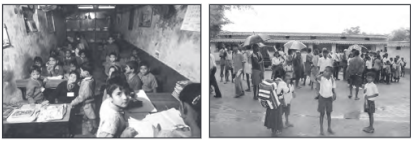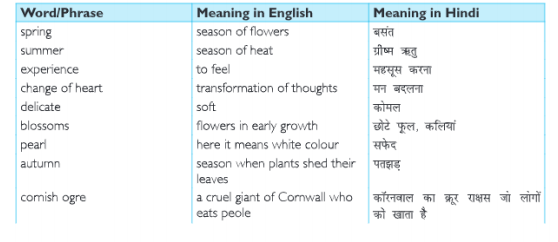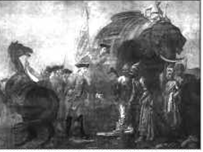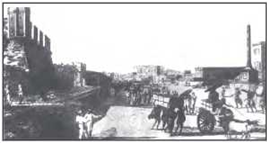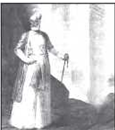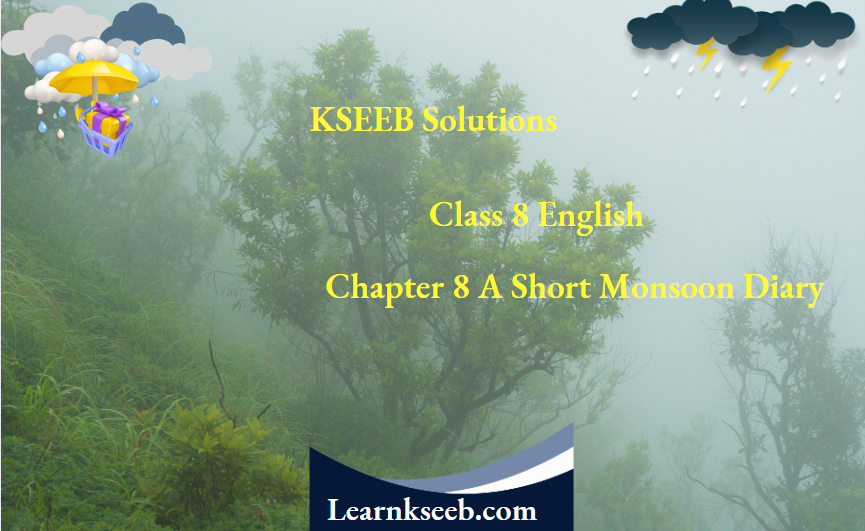KSEEB Solutions For Class 8 English Chapter 1 The Best Christmas Present In The World
Prose – Michael Morpurgo
Summary In English
The author found a nineteenth-century roll-top desk made of oak in a junk shop. The desk was in very bad condition. The author bought it thinking that he would restore it. He began repairing it on Christmas Eve and found a letter in one of its drawers. He took out the letter and began reading it. The letter was written by Jim Macpherson to his wife Connie.
From the letter, he came to know that Jim Macpherson was the leader of the England Army that was engaged in combat with the German Army at the time the letter was written. Macpherson wrote in the letter about a wonderful thing that happened one Christmas morning. He saw someone waving a white flag from the enemy side and heard Christmas wishes.
The English Army too wished them a Merry Christmas. Soon the two armies met at the no man’s land. Macpherson met an officer of the German army named Hans Wolf and they started talking about their lives. In the meantime, a soldier bought a football and the two teams started playing football.
The Germans won. After the football match, drinks and food were consumed by both armies. Later they saluted each other and the Germans walked away slowly. Jim bid farewell to Hans. In the night both armies were heard singing carols. Macpherson ended the letter by writing that both the armies longed for peace and he hoped that the war would end soon.
After reading the letter, the author decided to give this letter to Jim’s wife. He went to the address written on the envelope. On reaching the place, he found that Macpherson’s house had caught fire and his wife was in a nursing home. He rushed to the nursing home and found Jim’s wife there. She had grown too old waiting for her husband and she mistook the author for her husband, Jim. She declared him to be the best Christmas present in the world.

Class 8 English KSEEB Chapter 1 The Best Christmas Present In The World Summary
Summary In Hindi
लेखक को एक कबाड़ की दुकान में एक 19 वीं शताब्दी का गोल तले का डैस्क मिलता है। डैस्क बहुत ही बुरी हालत में था। लेखक ने उसकी मरम्मत करने के विचार से उसे खरीद लिया। क्रिस्मस की संध्या को उसने उसकी मरम्मत करनी शुरू करी और डैस्क की एक दराज में उसे एक पत्र मिला। उसने पत्र निकाल कर पढ़ना शुरू किया। वह पत्र जिम मैक्फरसन vने अपनी पत्नी कॉनी को लिखा था।
पत्र पढ़ कर उसे पता चला कि जिम मैक्फरसन अंग्रेजी सेना, जो कि जर्मन सेना के साथ पत्र लिखे जाने के समय युद्धरत थी, का नेता था। मैक्फरसन ने क्रिस्मस की प्रातः हुए एक अद्भुत नजारे के विषय में पत्र में लिखा था।
एक क्रिस्मस की सुबह उसने शत्रु सेना की ओर से किसी को सफेद झंडा लहराते देखा और क्रिस्मस की शुभकामनाएँ सुनी। अंग्रेजी सेना ने भी उन्हें शुभकामनाएँ दीं। जल्दी ही दोनों सेनाएँ तटस्थ भू-भाग पर मिली। मैक्फरसन और एक जर्मन अफ्सर, हेंस वुल्फ अपनी-अपनी जिंदगियों के बारे में बात करने लगें। तभी एक सैनिक फुटबॉल ले आया औरदोनों दल फुटबॉल खेलने लगें।
जर्मन सेना की जीत हुई। फुटबॉल मैच के बाद दोनों दलों ने खाने-पीने का आनंद लिया। बादमें उन्होंने एक दूसरे को सलामी दी और जर्मन सैनिक वापस चले गए। जिम ने हैंस को अलविदा कहा। रात को दोनों सेनाओंने क्रिस्मस प्रार्थनाएँ की मैक्फरसन ने पत्र के अंत में लिखा कि दोनों देशों की सेनाएँ शांति चाहती थीं और युद्ध समाप्त होनेकी कामना करती थी। लेखक ने वह पत्र जिम की पत्नी को देने का निश्चय किया।
वह पत्र पर लिखे पते पर पहुंचा। वहाँपहुँचा तो उसे पता चला कि मैक्फरसन के घर पर आग लग गई है और उसकी पत्नी नर्सिंग होम में है। वह वहाँ पहुँचा औरजिम की पत्नी से मिला । वह अपने पति के इतंजार में बहुत बूढ़ी हो गई थी और उसने लेखक को अपना पति जिम समझा।उसने लेखक को विश्व का सर्वोतम क्रिस्मस उपहार कह कर बुलाया।
The Best Christmas Present in the World Hindi Translation Of The Lesson (With Word Meanings)
There are some dates or periods of time in the history of the world that are so significant that everyone knows and remembers them. The story you will read mentions one such date and event: a war between the British and the Germans in 1914. Can you guess which war it was?
Do you know which events the dates below refer to?
(a) 4 July 1776
(b) 17 December 1903
(c) 6 August 1945
(d) 30 January 1948
(e) 12 April 1961
(f) 20 July 1969
विश्व के इतिहास में कुछ ऐसी तिथियाँ एवं कालखंड हैं जो इतने महत्त्वपूर्ण हैं कि हर व्यक्ति उन्हें जानता है और याद रखता है। यह कहानी, जो तुम पढ़ोंगे, ऐसी ही एक तिथि और घटना – 1914 में ब्रिटिश और जर्मनों के मध्य युद्ध का उल्लेख करती है।क्या तुम अनुमान लगा सकते हो यह कौन सा युद्ध था ?
क्या तुम जानते हो निम्न तिथियाँ किन घटनाओं से संबंधित हैं?
(a) 4 जुलाई 1776
(b) 17 दिसंबर 1930
(c) 6 अगस्त 1945
(d) 30 जनवरी 1948
(e) 12 अप्रैल 1961
(f) 20 जुलाई 1969
Answer.
(a) American Declaration of Independence.
(b) Wilbur and Orville Wright made the first flight, remaining in the air for 12 seconds and covering 120 feet.
(c) Hiroshima Day: An atomic bomb was dropped on Hiroshima in Japan on this day.
(d) Assassination of Mahatma Gandhi,
(e) Yuri A. Gagarin became the first human to orbit the Earth.
(f) Neil Armstrong became the first human to set foot on the Moon.
Word Meaning
- periods portions of time, कालखंड
- mention naming, उल्लेख
- significant important, महत्त्वपूर्ण
I spotted it in a junk shop in Bridport, a roll-top desk. The man said it was the early nineteenth century and oak. I had wanted one, but they were far too expensive. This one was in a bad condition, the roll-top in several pieces, one leg clumsily mended, and scorch marks all down one side. It was going for very little money. I thought I could restore it. It would be a risk, a challenge, but I had to have it. I paid the man and brought it back to my workroom at the back of the garage. I began work on it on Christmas Eve.
मैंने गोलकार तल वाले इस डेस्क को ब्रिडपोर्ट में एक कबाड़ी की दुकान में देखा। उस व्यक्ति ने कहा यह आरम्भिक 19वीं शताब्दी का है और बलूत का बना है। मैं ऐसा ही एक डेस्क चाहता था, परन्तु वे बहुत अधिक महंगे थे। यह डेस्क खस्ता हालत में था। इसका लपेटा हुआ ऊपरी भाग अनेक खंडों में था। इसकी एक टाँग की भद्दे ढंग से मरम्मत की गई थी। एक ओर पूरा नीचे तक जलने के निशान थे। यह बहुत कम पैसों में बिक रहा था। मैंने सोचा कि मैं इसकी मरम्मत कर सकता हूँ। यह एक जोखिम, एक चुनौती हो सकती है, परन्तु मुझे इसे लेना ही है। मैंने उस आदमी को मोल चुकाया और इसे अपने गैराज के पिछले भाग में स्थित अपनी कार्यशाला में ले आया। मैंने क्रिसमस की पूर्व संध्या को इस पर काम आरम्भ कर दिया।
KSEEB Class 8 English Reader Solutions For The Best Christmas Present In The World
Word Meanings
spotted-saw found, देखा, पाया
roll-top- upper part formed into a cylinder without folding, ऊपरी भाग बेलन के समान लपेटा हुआ
scorch- burn, Stellall mended repaired, मरम्मत की
restore-repair, मरम्मत करना
junk – waste material, कबाड़, कूड़ा-कर्कट
clumsily – in an awkward manner, भद्देपन से
going for –selling
challenge – calling to account
I removed the roll-top completely and pulled out the drawers. The veneer had lifted almost everywhere it looked like water damage to me. Both fire and water had clearly taken their toll on this desk. The last drawer was stuck fast. I tried all I could to ease it out gently. In the end, I used brute force. I struck it sharply with the side of my fist and the drawer flew open to reveal a shallow space underneath, a secret drawer. There was something in there. I reached in and took out a small black tin box. Sello-taped to the top of it was a piece of lined notepaper written on it in shaky handwriting. “Jim’s last letter, received January 25, 1915, To be buried with me when the time comes.” | knew as I did it that it was wrong of me to open the box, but curiosity got the better of my scruples. It usually does.
मैंने ऊपरी भाग को पूरी तरह से हटा दिया और दराज़ों को खींचे कर बाहर निकाला। ऊपर चढ़ाई गई पतली परत प्राय: हर स्थान पर ऊपर उभर आई थी। मुझे लगता था कि यह क्षति पानी ने पहुचाई होगी। स्पष्ट था कि इस डेस्क को आग और पानी दोनों ने मिलकर खराब कर दिया था। अन्तिम दराज़ पूरी तरह से जाम था। मैंने पूरा प्रयास किया कि वह आसानी से बाहर निकल आए । अन्त में मैंने अपनी पूरी शक्ति का प्रयोग किया। मैंने अपनी मुट्ठी से इस पर जोर से चोट मारी और दराज़, नीचे एक छिछले स्थान पर एक गुप्त दराज को प्रकट करते हुए खुल गया। इस अन्दर कुछ था मैंने अन्दर हाथ डाला और एक छोटा-सा काला टीन का डिब्बा बाहर निकाला। इसके ऊपर एक धारीदार कागज़ का टुकड़ा सेलोटेप से चिपकाया गया था जिस पर काँपतें हुए हाथों से लिखा था: “जिम का अन्तिम पत्र, जनवरी 25, 1915 को प्राप्त । समय आने पर इसे मेरे संग दफनाया जाए। ” जब मैंने ऐसा किया तो मैं जानता था कि मेरे लिए इस डिब्बे को खोलना अनुचित है, परन्तु उत्सुकता ने मेरी भावनाओं का गला घोंट दिया। ऐसा प्रायः होता ही है।
Word Meanings
drawer – a sliding box in a case,
stuck fast- shut tight,
damage – harm, injury,
brute- rude, fre
scruples – feelings that make you hesitate to do something wrong, नैतिक विचार, भावनाएँ
veneer – a thin layer of superior kind of wood over an inferior one खराब लकड़ी केऊपर की अच्छी लकड़ी की पतली-सी परत
fist- clenched hand, मुट्ठी
curiosity – inquisitiveness, कौतूहल, उत्सुकता
shallow- having little depth, कम गहरा, छिछला
Inside the box there was an envelope. The address read: “Mrs jim Macpherson, 12 Copper Beeches, Bridport, Dorset.” I took out the letter and unfolded it. It was written in pencil and dated at the top- “December 26, 1914”,
डिब्बे के अन्दर एक लिफ़ाफ़ा था। उस पर पता था – ” श्रीमती जिम मैकफ़र्सन 12 कॉपर बीचिज ब्रिडपोर्ट, डॉसेंट। ” मैंने पत्र बाहर निकाला और इसकी परतें खोलीं। यह पेंसिल से लिखा गया था और ऊपर दिसम्बर 26, 1914 की तारीख डाली गई थी।
Word Meanings
envelope- a cover of paper, लिफ़ाफ़ा
generous- kind hearted, उदार
unfolded- opened out, खोला
Dearest Connie,
I write to you in a much happier frame of mind because something wonderful has just happened that I must tell you about at once. We were all standing to in our trenches yesterday morning, Christmas morning. It was crisp and quiet all about, as beautiful a moming as I’ve ever seen, as cold and frosty as a Christmas morning should be.
परमप्रिय कोनी,
मैं तुम्हें अति प्रसन्न मन से लिख रहा हूँ क्योंकि अभी-अभी कुछ ऐसी आश्चर्यजनक घटना घटी है जिसके बारे में मुझे तुरन्त तुम्हें बताना चाहिए। कल क्रिसमस की प्रातः हम सब खन्दकों में खड़े थे। चारों ओर पूर्ण खामोशी थी, यह ऐसी सुन्दर प्रातः थी जैसी कि मैंने शायद ही कभी देखी हो। अत्यंत शीतल और कुहरे वाली, जितनी कि क्रिसमस की प्रातः होनी ही चाहिए।
The Best Christmas Present in the World Class 8 KSEEB Questions And Answers
Word Meanings
trenches – long deep holes in the ground where soldiers hide from the enemy, खाई, खंदकें खाई की किलाबंदी
crisp- brisk, कुरकुरा
frosty – cold, chilly, पालेदार, बहुत ठंडा
I should like to be able to tell you that we began it. But the truth, I’m ashamed to say, is that Fritz be- gan it. First, someone saw a white flag waving from the trenches opposite. Then they were calling out to us from across no man’s land, “Happy Christmas, Tommy! Happy Christmas!” When we had got over the surprise, some of us shouted back, “Same to you, Fritz! Same to you!” I thought that would be that. We all did. But then suddenly one of them was up there in his grey greatcoat and waving a white flag. “Don’t shoot, lads!” someone shouted. And no one did. Then there was another Fritz up on the parapet, and another. “Keep your heads down,” I told the men, “it’s a trick.” But it wasn’t.
मैं तुम्हें सारी बात बताना चाहता हूँ कि हमने इसे आरम्भ किया। परन्तु मैं यह कहते हुए लज्जा अनुभव कर रहा हूँ कि सच्चाई यह है कि जर्मनों ने इसे आरम्भ किया। सबसे पहले किसी ने सामने की खन्दकों से सफेद झंडा लहराता हुआ देखा। तत्पश्चात् वे तटस्थ क्षेत्र के पार से हमें पुकार कर कह रहे थे, “शुभ क्रिसमस, ब्रिटिश सैनिको, शुभ क्रिसमस!” जब हमने अपने आश्चर्य पर काबू पा लिया, तब हम में से कुछ ने उत्तर में पुकार कर कहा, “तुम्हें भी क्रिसमस मुबारक, जर्मन सैनिको!” मैंने सोचा बस इतना ही होगा। हम सबने यही सोचा। परन्तु उसी समय अचनाक उनमें से एक अपने भूरे रंग का लम्बा कोट पहने उठ खड़ा हुआ और सफ़ेद झंडा लहराने लगा। किसी ने चिल्ला कर कहा, “लड़कों (जवानों), गोली मत चलना।” और किसी ने गोली नहीं चलाई। तत्पश्चात् वहाँ खन्दक (खाई) के पास की दीवार पर एक और जर्मन सिपाही उठ खड़ा हुआ, फिर एक और मैंने अपने आदमियों से कहा, अपने सिर नीचे रखो यह कोई चाल है।” परन्तु ऐसा नहीं था।
Word Meanings
ashamed- felt shame, लज्जित, शर्मिंदा
across- on the opposite side of पार
Tommy – a common name for a British soldier, अंग्रेज सैनिक
grey- of white color mixed with black, भूरा
parapet- the wall of the side of a trench, खाई के पास की दीवार
Fritz – a common name for a German soldier, जर्मन सैनिक
One of the Germans was waving a bottle above his head. “It is Christmas Day, Tommy. We have schnapps. We have sausage. We meet you? Yes?” By this time there were dozens of them walking towards us across no man’s land and not a rifle between them. Little Private Morris was the first up. “Come on boys, What are we waiting for?” And then there was no stopping them. I was the officer. I should have stopped them there and then, I suppose, but the truth is that it never even occurred to me I should. All along their line and ours, I could see men walking slowly toward one another, grey coats, and khaki coats meeting in the middle.
जर्मन (सिपाहियों) में से एक अपने सिर के ऊपर बोतल लहरा रहा था। “ब्रिटिश सिपाहियों, यह क्रिसमस दिवस है, हमारे पास Schnapps ( जर्मन शराब) है। हमारे पास मांस है। हम तुमसे मिलें? ठीक है?” इस समय तक उनमें से दर्जनों तटस्थ क्षेत्र को पार करके हमारी ओर चले आ रहे थे और उनके पास कोई राइफल नहीं थी। लिटिल प्राइवेट मॉरिस सबसे पहले खड़ा हुआ, “लड़को आओ, हम किस बात की प्रतीक्षा कर रहे हैं?” और उसके बाद उन्हें कोई रोकने वाला नहीं था। मैं अधिकारी था। मैं समझता हूँ मुझे उनको वहीं और उसी समय रोक देना चाहिए था, परंतु सच्चाई यह है कि मुझे कभी लगा ही नहीं कि मुझे रोकना चाहिए। उनकी लाइनों और हमारी लाइनों सभी ओर मैं जवानों को धीरे-धीरे एक-दूसरे की ओर आते हुए देख सकता था, मध्य भाग में भूरे कोट (जर्मन) तथा खाकी कोट (ब्रिटिश) आपस में मिल रहे थे। और मैं उन में से एक था। मैं इसका एक भाग था। युद्ध के दौरान हम शांति मना रहे थे।
Word Meanings
schnapps – a German drink made from wheat grains, गेहूँ से बना जर्मन पेय
no man’s land – a stretch of land between two enemy states controlled by neither, तटस्थ भूमि
sausage – minced meat seasoned and stuffed in cylindrical cases, डिब्बों में भरा मसाला लगा मांस
You cannot imagine, dearest Connie, my feelings as I looked into the eyes of the Fritz officer, who approached me, hand outstretched. “Hans Wolf,” he said, gripping my hand warmly and holding it. “I am from Dusseldorf. I play the cello in the orchestra. Happy Christmas.” sausage – minced meat seasoned and stuffed in cylindrical cases,
“Captain Jim Macpherson,” I replied. “And a Happy Christmas to you too. I’m a school teacher from Dorset, in the west of England.”
परमप्रिय कोनी, तुम उस समय मेरी भावनाओं की कल्पना नहीं कर सकती जिस समय मैंने उस जर्मन अधिकारी की आँखों में देखा, जो मेरे पास पहुँचा, हाथ ( मिलाने के लिए) बाहर फैलाए हुए। मेरे हाथ को गर्मजोशी के साथ पकड़ते हुए और इसे थामे हुए, उसने कहा, “(मैं) हैन्सवुल्फ ( हूँ)। मैं ड्यूसेल्डडोर्फ से हूँ। मैं थिएटर में सेलो बजाता हूँ। क्रिसमस मुबारक हो । ” मैंने उत्तर में कहा, ” (मैं) कैप्टेन जिम मैकफ़र्सन ( हूँ) | अपको क्रिसमस मुबारक हो। मैं इंग्लैंड के पश्चिमी भाग में स्थित डॉरसैट से स्कूल अध्यापक हूँ।”
Word Meanings
approached – came near to, पास पहुँचा
out stretched- spread out फैलाया हुआ
gripping- holding firmly, कसकर पकड़े हुए
orchestra – a company of performers playing musical instruments कई प्रकार के वाद्यों को बजाने वाला समूह
Explanation Of The Best Christmas Present In The World KSEEB Class 8
“Ah, Dorset,” he smiled. “I know this place. I know it very well.” We shared my rum ration and his excellent sausage. And we talked, Connie, how we talked. He spoke almost perfect English. But it turned out he had never set foot in Dorset, never even been to England. He had learned he knew of England from school, and from reading books in English. His favorite writer was Thomas Hardy, his favorite book was Far from the Madding Crowd. So out there in no man’s land, we talked of Bathsheba and Gabriel Oak and Sergeant Troy and Dorset. He had a wife and one son, born just The Best Christmas Present in the World six months ago. As I looked about me there were huddles of khaki and grey everywhere, all over no man’s land, smoking, laughing, talking, drinking, eating. Hans Wolf and I shared what was left of your wonderful Christmas cake, Connie. He thought the marzipan was the best he had ever tasted. I agreed. We agreed about everything, and he was my enemy. There never was a Christmas party like it, Connie.
‘अहा ! डोरसेट” वह मुस्कराया। मैं इस स्थान को जानता हूं। मैं इसे अच्छी तरह से जानता हूँ। हमने मेरी राशन की रम और उसके बढ़िया मांस का मिल-जुल कर आनन्द लिया। और कोनी, हमने बातचीत की, जैसे (आमतौर पर) हम बात करते थे। वह लगभग शुद्ध अंग्रेजी बोलता था। परन्तु इस बात का पता चला कि उसने कभी डोरसेट में कदम नहीं रखा था, इंग्लैंड में भी कभी नहीं आया था। इंग्लैंड के बारे में वह जो कुछ जानता था, वह उसने स्कूल में, अंग्रेजी की पुस्तकों के अध्ययन से ही जाना था। उसका मनपसंद लेखक था थामस हार्डी, उसकी मनपसन्द पुस्तक ‘Far from the Madding Crowd’ थी। इस प्रकार वहाँ तटस्थ भूमि पर हमने Bathsheba and Gabrial Oak और Sergeant Troy and Dorset के विषय में बातचीत की। उसकी एक पत्नी है और एक पुत्र, जिसका जन्म केवल छः मास पूर्व हुआ है। ज्योंहि मैंने अपने चारों ओर देखा वहीं मैंने तटस्थ भूमि पर सभी जगह खाकी और भूरे रंग की (वर्दी पहने हुए लोगों की भीड़ देखी जोकि धूम्रपान कर रहे थे, बातचीत कर रहे थे, शराब पी रहे थे, खाना खा रहे थे। कोनी तुम्हारे (भेजे हुए) शानदार ( स्वादिष्ट) क्रिसमस केक के बचे हुए भाग को हैंस वुल्फ और मैंने मिल कर खाया | उसका विचार था कि Marzipan उसके द्वारा अब तक खाए गए सभी पदार्थों में सर्वश्रेष्ठ था। मैं (उससे) सहमत था । हम हर बात पर सहमत थे, हालाँकि वह मेरा शत्रु था। कोनी, इस प्रकार की क्रिसमस पार्टी कभी नहीं हुई थी।
Word Meanings
excellent-pre-eminent, fine, श्रेष्ठ
shared – distributed, ate collectively, बाँट कर खाया
huddles- groups, crowd, समूह
grey- of white color mixed with black, भूरा
favorite – regarded with fondness, for
marzipan – a sweet covering on a cake made from sugar, eggs and almonds, मीठा खाद्य पदार्थ (केक पर लगा हुआ)
Then, someone, I don’t know brought out a football. Greatcoats were dumped in piles to make goalposts and the next thing we knew it was Tommy against Fritz out in the middle of no man’s land. Hans Wolf and I looked on and cheered, clapping our hands and stamping our feet, to keep out the cold as much as anything. There was a moment when I noticed our breaths mingling in the air between He saw it too and smiled. “Jim Macpherson,” he said after a while, “I think this is how we should resolve this war. A football match. No one dies in a football match. No children are orphaned. No wives become widows.”
तभी कोई व्यक्ति, मैं नहीं जानता कौन, एक फुटबॉल निकाल लाया। लम्बे कोट गोल पोस्ट बनाने के लिए ढेरों में इकट्ठे कर दिए गए थे, और इसके पश्चात् होने वाली घटना जो हमें मालूम है, तटस्थ भूमि पर ब्रिटिश सिपाहियों और जर्मन सिपाहियों का मैच था। हैंस वुल्फ और मैं देख रहे थे और उनको प्रोत्साहित करने के लिए तथा सर्दी भगाने के लिए अपने हाथों से तालियाँ बजाते हुए अपने पैरों को जमीन पर पटक रहे थे। एक क्षण ऐसा आया जब मैंने देखा कि हमारी साँसें हमारे बीच की वायु में परस्पर मिल रही हैं। उसने भी इसे देखा और मुस्करा दिया। कुछ समय बाद उसने कहा, “जिम मैक्फर्सन, मेरे विचार में यही तरीका है जिससे हमें इस युद्ध का हल करना चाहिए। एक फुटबॉल मैच। फुटबॉन मैच में कोई नहीं मरता । बच्चे अनाथ नहीं होते। पत्नियाँ विधवाएँ नहीं होतीं।”
Word Meanings
dumped- threw down, नीचे फेंका
stamping – striking the ground heavily with sole of foot, पावों के तलों को जमीन पर मारना
orphaned- bereft of mother and father, अनाथ हुए
piles- heaps, ढेर
mingling – mixing परस्पर मिलते हुए
resolve- settle, निर्णय करना
I’d prefer cricket,” I told him. “Then we Tommies could be sure of winning, probably.” We laughed at that, and together we watched the game. Sad to say, Connie. Fritz won two goals to one. But as Hans Wolf generously said, our goal was wider than theirs, so it wasn’t quite fair. The time came, and all too soon, when the game was finished, the schnapps and the rum and the sausage had long since run out, and we knew it was all over. I wished Hans well and told him I hoped he would see his family again soon, that the fighting would end and we could all go home.
मैंने उसे कहा, “मैं क्रिकेट को प्राथमिकता दूँगा ।” “सम्भवतः, तब हम ब्रिटिश निश्चित रूप से जीत सकते हैं।” इस बात पर हम हँस पड़े, और साथ-साथ हमने खेल देखा। कोनी, यह कहते हुए खेद है कि जर्मन एक के मुकाबले दो गोल से जीत गए। परंतु जैसा कि हैंस वुल्फ ने उदारतापूर्वक कहा, हमारा गोल उनके गोल से अधिक जोरदार था, अतः यह पूर्णतया युक्ति-संगत नहीं था। समय बीतते पता ही नहीं चला। इसके साथ ही खेल समाप्त हो गया, (जर्मन) शराब और (ब्रिटिश) रम, और (जर्मन) मांस कभी के समाप्त हो चुके थे। हम जान गए यह सब समाप्त हो चुका है। मैंने हैंस को शुभकामनाएँ दीं, और आशा व्यक्त की कि वह शीघ्र ही अपने परिवार से पुनः मिलेगा, लड़ाई समाप्त हो जाएगी और हम सब घर जा सकेंगे।
Word Meanings
prefer– to estimate highly, अधिमान देना
generously – liberally, उदारतापूर्वक
run out- come to an end, समाप्त होना
probably- possibly, संभवतः
fair- honest, ईमानदार, न्यायसंगत
“I think that is what every soldier wants on both side,” Hans Wolf said, “Take care, Jim Macpherson. I shall never forget this moment, nor you.” He saluted and walked away from me slowly, unwillingly, I felt. He turned to wave just once and then became one of the hundreds of grey-coated men drifting back towards their trenches.
हैंस वुल्फ ने कहा, “मेरे विचार में दोनों पक्षों का प्रत्येक सिपाही यही चाहता है। ” “जिम मैक्फर्सन अपना ध्यान रखना, मैं यह क्षण कभी नहीं भूल पाऊँगा और न ही तुम। ” उसने नमस्कार किया, और अनिच्छापूर्वक वह धीमी गति से वहाँ से चला गया। केवल एक बार पीछे मुड़कर हाथ मिलाया और फिर अपनी खन्दकों की ओर वापिस जा रहे सैकड़ों भूरे कोटों में जा मिला।
KSEEB notes for Class 8 English Chapter 1
Word Meanings
unwillingly- reluctantly, अनिच्छापूर्वक
drifting- going, जा रहे
moment- a very small portion of time, क्षण
That night, back in our dugouts, we heard them singing a canol, and singing it quite beautifully. It was Stille Nacht, Silent Night. Our boys gave them a rousing chorus of While Shepherds Watched. We exchanged carols for a while and then we all fell silent. We had our time of peace and goodwill, a time I will treasure as long as I live
Dearest Connie, by Christmas time next year, this war will be nothing but a distant and terrible memory. I know from all that happened today how much both armies long for peace. We shall be together again soon, I’m sure of it
उस रात, अपनी खन्दकों में, हम ने उन्हें एक खुशी का गीत गाते सुना और वे अति सुन्दर ढंग से गा रहे थे। यह Stille Nacht (‘मौन रात्रि ) गीत था। हमारे जवानों ने उन्हें While Shepherds Watched’ का एक मिश्रित प्रेरणादायक गीत सुनाया। हमने कुछ समय तक आनन्द के गीतों का आदान प्रदान किया और फिर हम शान्त हो गए। हम ने शान्ति और सद्भावना का समय बिताया, यह ऐसा समय था जिसे मैं आजीवन सँभाल कर रखूँगा। प्रियतम कोनी, अगले साल की क्रिसमस समय तक, यह युद्ध एक दूरस्थ और दुःखद यादगार के सिवाय कुछ भी नहीं रहेगा। आज जो कुछ हुआ उस सब से मैं जान सकता हूँ कि दोनों सेनाएँ शान्ति के लिए कितनी अधिक कामना करती हैं। मुझे विश्वास है कि हम शीघ्र ही फिर से साथ-साथ होंगे।
Word Meanings
dugouts – shelters for soldiers made by digging in the ground and saving them, भूमिगत शरण स्थल
rousing – provoking, उत्तेजना देने वाला
goodwill- friendly feelings or attitude, सद्भावन
carol- a joyous song, आनंद का गीत
chorus- a song sung collectively, मिलकर गाया हुआ गीत
terrible- frightful, भयंकर
I folded the letter again and slipped it carefully back into its envelope. I kept awake all night. By morning knew what I had to do. I drove into Bridport, just a few miles away. I asked a boy walking his dog where Copper Beeches was. House number 12 turned out to be nothing but a burned-out shell, the roof gaping, the windows boarded-up. I knocked at the house next door and asked if anyone knew the whereabouts of Mrs. Macpherson. Oh yes, said the old man in his slippers, he knew her well. A lovely old lady, he told me, a bit muddle-headed, but at her age, she was entitled to be, wasn’t she? A hundred and one years old. She had been in the house when it caught fire. No one really knew how the fire had started, but it could well have been candles. She used candles rather than electricity because she always thought electricity was too expensive. The fireman had got her out just in time. She was in a nursing home now, he told me. Burlington House, on Dorchester road, on the other side of town.
मैंने पत्र को पुनः तह किया और ध्यानपूर्वक में डाल दिया। मैं सारी रात जगाता रहा। प्रातः होने तक मैं जान गया था कि मुझे क्या करना है। मैं कुछ ही मील दूर, ब्रिडपोर्ट में गाड़ी से गया। मैंने अपने कुत्ते को घुमा रहे एक लड़के से पूछा कि कॉप्पर बीचज कहाँ है। मकान नं० 12 एक जले हुए खोल के अतिरिक्त और कुछ नहीं निकाला। छत खुली हुई थी, खिड़कियाँ बोडों से बन्द थीं। मैंने पास के घर का द्वार खटखटाया और पूछा कि क्या कोई श्रीमती मैक्फर्सन के विषय में जानता है। स्लीपर पहने एक बूढ़े आदमी ने कहा, हाँ, वह उसे अच्छी तरह से जानता है। उसने मुझे बताया कि वह एक सुन्दर बुढ़िया है, कुछ जड़ बुद्धि वाली है, परन्तु उस आयु में भी वह इस की पात्र थी, क्या नहीं थी? 101 वर्ष की वृद्धा । वह घर में थी जब इसे आग लगी । वास्तव में कोई भी नहीं जानता कि आग कैसे लगी परन्तु इस का कारण अवश्य मोमबत्तियाँ रही होंगी। वह बिजली की अपेक्षा मोमबत्तियाँ का उपयोग करती थीं, क्योंकि वह सदा सोचती थी कि बिजली अधिक महँगी है। फायरमैन ने ठीक समय पर उसे बाहर निकाल लिया था। उस ने मुझे बताया कि इस समय वह, नगर दूसरी ओर डार्चेस्टर सड़क पर स्थित, बर्लिंगन हाउस नामक नर्सिंग होम में है।
Word Meanings
folded- enveloped, rolled, तह किया
slipped – act of slipping,
entitled- fit for, पात्र
expensive – costly, महँगी
muddle- headed confused, जड़-बुद्धि वाला
gaping- break or opening in a wall, हृदरार/खाली जगह
I found Burlington House Nursing Home easily enough. There were paper chains up in the hallway and a lighted Christmas tree stood in the corner with a lopsided angel on top. I said I was a friend coming to visit Mrs. Macpherson to bring her a Christmas present. I could see through into the dining room where everyone was wearing a paper hat and singing. The matron had a hat on too and seemed happy enough to see me. She even offered me a mince pie. She walked me along the corridor. “Mrs. Macpherson is not in with the others,” she told me. “She’s rather confused today so we thought it best if she had a good rest. She has no family you know, no one visits. So I’m sure she’ll be only too pleased to see you.” She took me into a conservatory with wicker chairs and potted plants all around and left me.
मैं बर्लिंगटन हाउस नर्सिंग होम तक काफी आसनी से पहुँच गया। वहाँ हाल के मार्ग में ऊपर कागज की लड़ियाँ थीं, और एक कोने में एक प्रकाशित क्रिसमस वृक्ष खड़ा था, जिसकी चोटी पर तिरछा लटका हुआ एक देवदूत था। मैंने कहा मैं एक मित्र, श्रीमती मैक्फर्सन से मिलने तथा उसके लिए क्रिसमस का उपहार लेकर आया हूँ। मैं भोजन कक्ष में हर व्यक्ति को कागज की टोपी पहने तथा गीत गाते देख सकता था। मेट्रन भी हैट पहने हुए थी और मुझे मिलकर काफी खुश नजर आ रही थी। उसने मुझे मांस की एक कचौड़ी भी प्रस्तुत की। वह मुझे गलियारे के साथ-साथ ले गईं। उसने मुझे बताया, “श्रीमती मैक्फर्सन अन्दर दूसरों के साथ नहीं है। वह आज काफी उलझन में है। अतः हम ने सोचा कि यह बहुत अच्छा रहेगा, यदि उसे अच्छा विश्राम मिल जाए। आप जानते हैं कि उस का कोई परिवार नहीं है, कोई भी उसे मिलने नहीं आता है। अतः मुझे यकीन है वह आप से मिल कर बहुत प्रसन्न होगी।” वह मुझे एक सुरक्षित भंडार में ले गईं जिसमें चारों ओर सींक की बनी कुर्सियाँ और गमलों में पौधे लगे थे, और मुझे वहाँ छोड़ गई।
Word Meanings
lopsided-unbalanced, असंतुलित
mince- meat cut into small pieces, छोटे-छोटे टुकड़ों में कटा हुआ
confused-perplexed, व्याकुल
conservatory- a greenhouse, कोमल वनस्पतियों को रखने का रक्षा- गृह
matron – the woman superintendent of a hospital, प्रधान परिचारिका
pie – fruit crust covered with paste and baked, कचौड़ी, समोसा
wicker-twigs or canes woven together, टहनी, नरम बेंत
The old lady was sitting in a wheelchair, her hands folded in her lap. She had silver-white hair pinned into a wispy bun. She was gazing out at the garden. “Hello,” I said. She turned and looked up at me vacantly. “Happy Christmas, Connie, ” I went on. “| found this. I think it’s yours.” As I was speaking her eyes never left my face. I opened the tin box and gave it to her. That was the moment her eyes lit up with recognition and her face became suffused with a sudden glow of happiness. I explained about the desk, about how I had found it, but I don’t think she was listening. For a while, she said nothing but stroked the letter tenderly with her fingertips.
वृद्ध महिला पहियों वाली एक कुर्सी पर बैठी हुई थी, उसके जुड़े हुए हाथ उसकी गोद में थे। उसने चाँदी जैसे सफेद बालों का एक गुच्छेदार जूड़ा बनाया हुआ था। वह लगातार बाग की ओर देख रही थी। मैंने कहा, “हैलो !” वह मुड़ी और मेरी ओर खाली नजरों से देखा। मैंने कहना जारी रखा, “कोनी, क्रिसमस आनन्दमयी हो । ” “मुझे यह मिला था, मेरा विचार है कि यह तुम्हारा है।” जब मैं बोल रहा था, तो उसकी आँखें मेरे चेहरे से नहीं हट रही थीं। मैंने टिनबॉक्स खोला और उसे दे दिया। उसी क्षण उसके नेत्र पहचान के कारण चमक उठे और उसका चेहरा अचानक खुशी से खिल उठा। मैंने डेस्क के विषय में बताया, मैंने बताया कि मुझे यह कैसे मिला, परन्तु मेरे विचार में वह मुझे सुन नहीं रही थी। कुछ समय तक उसने कुछ नहीं कहा, केवल कोमलतापूर्वक अपनी उँगलियों के सिरों से पत्र को सहलाती रही।
Word Meanings
gazing out-long steady look, लगातार देखना
vacantly-thoughtlessly, विचार शून्य
lit up – became bright with happiness, चमक उठी
wispy-small bundle, गुच्छा
suffused-spread all over, व्याप्त
stroked-patted, थपथपाया, सहलाया
Suddenly she reached out and took my hand. Her eyes were filled with tears. “You told me you’d come home by Christmas, dearest,” She said. “And here you are, the best Christmas present in the world. Come closer, Jim dear, sit down.” The Best Christmas Present in the World I sat down beside her, and she kissed my cheek, “I read your letter so often Jim, every day. I wanted to hear your voice in my head. It always made me feel you were with me. And now you are. Now you’re back you can read it to me yourself. Would you do that for me, Jim dear? I just want to hear your voice again. I’d love that so much. And then perhaps we’ll have some tea. I’ve made you a nice Christmas cake, marzipan all around. I know how much you love marzipan.”
अचानक उसने हाथ बढ़ाकर मेरा हाथ पकड़ लिया। उसकी आँखों में आँसू आ गए। उसने कहा, “प्रियतम, तुम ने मुझे कहा था कि तुम क्रिसमस तक घर आ जाओगे।” “और तुम आ गए हो, संसार के सर्वश्रेष्ठ क्रिसमस उपहार के रूप में।” “प्रिय जिम और पास आओ, बैठ जाओ।” मैं उसके पास बैठ गया और उसने मेरे गाल चूम लिए। “जिम मैं प्रतिदिन कितनी बार तुम्हारे पत्र को पढ़ती थी। मैं अपने दिमाग में तुम्हारी आवाज सुनना चाहती थी। इससे मुझे सदा ऐसा लगता था कि तुम मेरे साथ हो और अब तुम ( साथ) हो (ही) । अब तुम वापिस आ गए हो, तुम स्वयं मुझे पत्र पढ़ कर सुनाओ। क्या तुम मेरे लिए यह काम करोगे, प्रिय जिम? मैं फिर से तुम्हारी आवाज सुनना चाहती हूँ। मुझे यह बहुत ही प्रिय लगेगा और तब शायद हम कुछ चाय लेंगे। मैंने तुम्हारे लिए बढ़िया क्रिसमस केक बनाया है जिसके चारों ओर marzipan लगा हुआ है। मैं जानती हूँ। मैं जानती हूँ तुम marzipan कितना अधिक पसन्द करते हो। “
Word Meanings
suddenly- unexpectedly, अचानक
all around- on all sides, चारों ओर
beside-close to, निकट / बगल में
perhaps-possibly, शायद
KSEEB Class 8 English Chapter 1 Important Questions
The Best Christmas Present in the World Textbook Exercises Comprehension Check 1
- What did the author find in the junk shop?Answer. The author found a roll-top desk made of oak in a junk shop.
- What did the author find in the secret drawer? Who do you think to put it in there?Answer. The author found a small black tin box in the secret drawer that had a letter in it. I think the owner of the roll-top desk, Mrs. Macpherson, had put it there.
Comprehension Check 2
- Who had written the letter, to whom, and when?Answer. Captain Jim Macpherson had written the letter to his wife, Connie. It was written a day after the Christmas of 1914. During that time a war was being fought between Britain and Germany.
- Why was the letter written-what was the wonderful thing that had happened?Answer. Captain Jim Macpherson wrote this letter to his wife to tell her about a wonderful thing that happened one Christmas day. That wonderful thing was a friendly gesture shown by the German soldiers by extending Christmas greetings to British soldiers one night during the war. They enjoyed meat and drinks. Thus the enemies became friends for one day.
- What job did Hans Wolf and Jim Macpherson have when they were not soldiers?Answer. Hans Wolf was a musician and Jim Macpherson was a schoolteacher when they were not soldiers.
- Had Hans Wolf ever been to Dorset? Why did he say he knew it?Answer. Hans Wolf had never been to Dorset nor even to England. He said so because he had learned all he knew about England from school and from reading English books.
- Do you think Jim Macpherson came back from the war? How do you know this?Answer. I think Jim Macpherson never came back from the war. The fact that when their house caught fire, Mrs. Macpherson was alone in the house. She lived there alone proving it. Secondly, Mrs. Macpherson had written on the tin box that it contained Jim’s last letter. It was to be buried with her after her death.
Comprehension Check 3
- Why did the author go to Bridport?Answer. The author went to Bridport to give back Mrs. Macpherson her letter.
- How old was Mrs. Macpherson now? Where was she?Answer. Mrs. Macpherson was 101 years old. She was in Burlington House Nursing Home situated on Dorchester road.
Comprehension Check 4
- Who did Connie Macpherson think her visitor was?Answer. She thought that her visitor was her husband, Jim Macpherson.
- Which sentence in the text shows that the visitor did not try to hide his identity?Answer. The sentence in the text which shows that the visitor did not try to hide his identity is – ‘I said I was a friend come to visit Mrs. Macpherson to bring her a Christmas present.’
The Best Christmas Present in the World Working With The Text
- For how long do you think Connie had kept Jim’s letter? Give reasons for your answer.Answer. Connie had kept Jim’s letter with her till their house caught fire. The burn marks, over the desk on which the letter was kept, show this.
- Why do you think the desk had been sold and when?
Answer. I think after the fire incident, Mrs. Connie must have sold the desk to the junk dealer. She must have sold it because it was in a bad condition.
- Why do Jim and Hans think that games or sports are good ways of resolving conflicts? Do you agree?Answer. Jim and Hans thought so because no one gets killed in sports. Wives do not become widows. Children do not become orphans. I completely agree with them.
- Do you think the soldiers of the two armies are like each other, or different from each other? Find evidence from the story to support your answer.Answer. The soldiers of the two armies are like each other. The soldiers of both armies want the war to end soon. They wished to go home. One Christmas morning, the German soldiers waved a white flag and shouted Christmas wishes. The English soldiers too wished them. The two armies met each other at the no man’s land and made merry. One German officer, Hans, commented that wars should be resolved by playing games like football.
- Mention the various ways in which the British and the German soldiers become friends and find things in common at Christmas.Answer. On Christmas morning, the German soldiers came out of their trenches waving the white flag. They were calling out from across no man’s land, “Happy Christmas”. The British soldiers wished The Best Christmas Present in the World the same to them. The Germans came to the no man’s land with schnapps and sausages. The British soldiers joined them with rum. They ate and drank. They also played a football match. Both wanted to go back to their families at the end of the war.
- What is Connie’s Christmas present? Why is it the best Christmas present in the world”?Answer. Her husband’s last letter is Connie’s best Christmas present. It is the best Christmas present because it brings back to her the memories of her husband. It is a symbol of her husband’s return on Christmas eve.
- Do you think the title of the story is suitable for it? Can you think of any other title(s)?Answer.Yes, the title of the story is very suitable. At the end, when the author went to Connie to give her husband’s letter, she mistook him for her husband. She glowed with joy and called him the best Christmas present in the world. Other titles can be Games: The Best Way to Solve Conflicts or The Lost Last Letter.
The Best Christmas Present in the World Working With Language
- Look at these sentences from the story.
I spotted it in a junk shop in Bridport… The man said it was made in the early nineteenth century…
This one was in bad condition…
The italicized verbs are in the past tense. They tell us what happened in the past, before now.
Read the passage below and underline the verbs in the past tense.
Answer A man got on the train and sat down. The compartment was empty except for one lady. She took her gloves off. A few hours later the police arrested the man. They held him for 24 hours and then freed him.
Now, look at these sentences.
The veneer had lifted almost everywhere. Both fire and water had taken their toll on this desk.
Notice the verb forms had lifted, had taken (their toll).
The author found and bought the desk in the past.
The desk was damaged before the author found it and bought it.
Fire and water had damaged the desk before the author found it and bought it.
- We use verb forms like had damaged for an event in the earlier past’. If there are two events in the past, we use the ‘had…. form for the event that occurred first in the past.
- We also use the past perfect tense to show that something was wished for or expected before a particular time in the past. For example, I had always wanted one…
- Discuss with your partner the difference in meaning in the sentences below.
(a) When I reached the station, the train left.
(b) When I reached the station, the train had left.
Answer.
(a) The first sentence means that the train left the moment I reached the station.
(b) The second sentence means that the train had already left when I reached the station.
Fill in the blanks using the correct form of the verbs in brackets.

Underline the verbs and arrange them in two columns, Past and Earlier past.
(a) My friends set out to see the caves in the next town, but I stayed at home because I had severe them already.
(b) When they arrived at the station, their train had left. They came back home, but by that time I had gone out to see a movie!
(c) So they sat outside and ate the lunch I had packed for them.
(d) By the time I returned, they had fallen asleep!
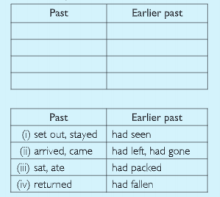
- Dictionary work
By the end of the journey, we had run out of drinking water. Look at the verb run out of in this sentence. It is a phrasal verb: it has two parts, a verb, and a preposition or adverb. Phrasal verbs often have meanings that are different from the meanings of their parts.
Find these phrasal verbs in the story.
burn out
light up
run out
look on
keep out
Write down the sentences in which they occur. Consult a dictionary and write down the meaning that you think matches the meaning of the phrasal verb in your sentence.
Answer.
- Burnout – House No. 12 turned out to be nothing but a burned-out shell.
- Meaning – destroyed by fire
- Light up That was the moment her eyes lit up with recognition.
- Meaning – became bright with happiness, excitement
- Look on-Hans Wolf and I looked on and cheered.
- Meaning – be a spectator
- Run out – The schnapps and the rum and the sausage had long since run out.
- Meaning – exhausted, finished, be used up
- Keep out – Hans Wolf and I looked on and cheered, clapping our hands and stamping our feet to keep out the cold.
- Meaning – to avoid
- Noun phrase
Analysis of The Best Christmas Present In The World KSEEB English Reader
Read the following sentence:
I took out a small black tin box.
The phrase in italics is a noun phrase.
- It has the noun – box – as the headword, and three adjectives preceding it.
- Notice the order in which the adjectives occur – size (small), color (black), and material (tin) of which it is made.
- We rarely use more than four adjectives before a noun and there is no rigid order in which they are used, though there is a preferred order of modifiers/adjectives in a noun phrase, as given below.

- The table below contains a list of nouns and some adjectives. Use as many adjectives as you can to describe each noun. You might come up with some funny descriptions!
 Answer.
Answer.
- I saw a wild enormous elephant.
- She has a cheerful, round, chubby, medium-sized face.
- This is a large, circular, multicolored building.
- I bathe in cold blue water.
The Best Christmas Present in the World Speaking
- In groups discuss whether wars are a good way to end conflicts between countries. Then present your arguments to the whole class.Answer. Wars are not a good way to end conflicts between countries. Wars bring death and destruction. A great number of soldiers are killed or crippled. Even the civilians suffer. Wives become widows. Children are orphaned. Property worth lakhs of rupees is destroyed. In short, wars are monsters that eat up everything that is valuable. In the words of Martin Luther: War is the greatest plague that can afflict humanity; it destroys religion, it destroys states, it destroys families.
- What kinds of presents do you like and why? What are the things you keep in mind when you buy presents for others? Discuss with your partner.(For example, you might buy a book because it can be read and re-read over a period of time.)Answer. I like presents which are useful and helpful. It may be a book because it can be read and re-read over a period of time. A dictionary proves helpful in the study of a language. In fact, when I buy presents for others, I keep in mind their age and profession. I also keep in mind their likes and dislikes.
Simplified Notes For The Best Christmas Present In The World KSEEB Class 8
The Best Christmas Present in the World Writing
- Imagine that you are Jim. You have returned to your town after the war. In your diary record how you feel about the changes you see and the events that occur in your town. You could begin like this 25th December.
It’s Christmas today, but the town look………..
Answer. 25th December 1919
It’s Christmas today, but the town looks somewhat different. Our country had been fighting against Germany. Now the war is over and we have come back home. My wife is overjoyed to get the most valuable Christmas gift in me. But our country has lost many brave soldiers. Many of them belonged to our town. Yet the people of my town are not distressed. They consider the killed soldier’s martyrs. They are celebrating Christmas in their memory. But it lacks its usual zeal and zest.Jim
or
Suppose you are the visitor. You are in a dilemma. You don’t know whether to disclose your identity and disappoint the old lady or let her believe that her dear Jim has come back. Write a letter to a friend highlighting your anxiety, fears, and feelings.
Bridport
26th December 20XX
Dear friend
I am in a huge dilemma. I have come through a strange incident. I bought an old desk from a junk shop. It was in bad condition. In a secret drawer of the desk, I found a letter. It was addressed to one Mrs. Macpherson. I noted the address and reached there but the house had burned to ashes. The lady had left the place. One of her neighbors told me that she was in a nursing home. He also told me the address of the nursing home. I reached there with the letter in my pocket. The lady was 101 years old. She had lost her power of recognition. Her husband, Jim had not returned from the war. She had become old while waiting for his return. When I gave her the letter as a Christmas gift, her face brightened and tears of happiness rolled down her eyes. In fact, she mistook me for Jim. I did not want to disappoint her so I kept mum. She still believes that I am her Jim.
Dear friend, I have some fears and concerns regarding the situation. Should I disclose my identity or not? Please guide me.
Do write to me soon.
Your friend
Michael
- Given below is the outline of a story. Construct the story using the outline.

Story
A young, newly married doctor came into contact with a renowned freedom fighter and got involved in the Indian freedom struggle. He was exiled to the Andaman and Nicobar Islands by the British. He was imprisoned in the infamous Cellular Jail. The prisoners were tortured there. Some of his inmates revolted. The doctor supported the revolters. For this the doctor was hanged till death. His wife waited for his return. But he never came back. She became old and weak. But she did not lose hope and faith. She continued to wait for him. She hoped that their happy days would return soon.
The Best Christmas Present in the World Extract-Based Questions
Read the extracts given below and answer the questions that follow
I. spotted it in a junk shop in Bridport, a roll-top desk. The man said it was an early nineteenth-century and oak. I had wanted one, but they were far too expensive. This one was in a bad condition, the roll-top in several pieces, one leg clumsily mended, and scorch marks all down one side. It was going for very little money. I thought I could restore it. It would be a risk, a challenge, but I had to have it. I paid the man and brought it back to my workroom at the back of the garage. I began work on it on Christmas Eve.
- Who is ‘l’ in the given passage?
- What did the author see in a junk shop?
- In what condition was it (the roll-top desk)?
- Where was the junk shop situated?
- Where was the author’s workroom located?
Answer.
- ‘I’ in the given passage is the author.
- The author saw a roll-top desk in a junk shop.
- The roll-top desk was in a bad condition.
- The junk shop was situated in Bridport.
- The author’s workroom was located at the back of the garage.
2. Inside the box, there was an envelope. The address read: “Mrs. Jim Macpherson, 12 Copper Beeches, Bridport Dorset.” I took out the letter and unfolded it. It was written in pencil and dated at the top “December 26, 1914”.
- What was there inside the box?
- Who was it (the envelope) addressed to?
- What did the author do with the letter?
- How was the letter written?
- When was the latter written?
Answer.
- There was an envelope inside the box.
- It was addressed to one Mrs. Jim Macpherson.
- The author took out the letter and unfolded it.
- The letter was written in pencil.
- The letter was written on December 26, 1914
KSEEB Solutions For Class 8 English Chapter 1 The Best Christmas Present in the World
3. First, someone saw a white flag waving from the trenches opposite. Then they were calling out to us from across no man’s land, “Happy Christmas, Tommy! Happy Christmas!” When we got over the surprise, some of us shouted back, “Same to you, Fritz! Same to you!” I thought that would be that. We all did. But then suddenly one of them was up there in his grey greatcoat and waving a white flag. “Don’t shoot, lads!” someone shouted. And no one did. Then there was another Fritz up on the parapet, and another. “Keep your heads down,” I told the men, “it is a trick.” But it wasn’t.
- What did someone see from the trenches opposite?
- Who was calling out and to whom?
- Which greetings were exchanged?
- What do Tommy and Fritz stand for?
- Who told his men to keep their heads down?
Answer.
- Someone saw a white flag waving from the trenches opposite.
- German soldiers were calling out to English soldiers.
- The Christmas greetings were exchanged.
- Tommy stands for a British soldier while Fritz stands for a German soldier.
- The British officer told his men to keep their heads down.
4. “Ah, Dorset,” he smiled, “I know this place. I know it very well.” We shared my rum ration and his excellent sausage. And we talked, Connie, how we talked. He spoke almost perfect English. But it turned out that he had never set foot in Dorset, never even been to England. He had learned all he knew of England from school, and from reading books in English. His favorite writer was Thomas Hardy, his favorite book was Far from the Madding Crowd.
- Who does ‘he’ refer to in the opening line?
- What did Jim and Hans share?
- Had Hans ever been to Dorset?
- How did Hans know about Dorset?
- Name the favorite writer and favorite book of Hans.
Answer.
- ‘He’ is the opening line that refers to the German officer, Hans Wolf.
- They shared rum and sausages.
- No, Hans had never been to Dorset.
- Hans had learned all he knew of England from school and from reading English books.
- Thomas Hardy was their favorite writer of Hans. His favorite book was ‘Far from the Madding Crowd’.
5. That night, back in our dugouts, we heard them singing a carol, and singing it quite beautifully. It was Stille Nacht, Silent Night. Our boys gave them a rousing chorus of While Shepherds Watched. We exchanged carols for a while and then we all fell silent. We had our time of peace and goodwill, a time I will treasure as long as I live.
- Who does the word ‘them’ in the opening line refer to?
- What were they singing?
- How were they singing the carol?
- What was the carol about?
- What was special about the time they had?
Answer.
- The word ‘them’ in the opening line refers to the German soldiers.
- They (German soldiers) were singing a carol.
- They were singing it beautifully.
- The carol was ‘Stille Nacht’, Silent Night.
- It was a time of peace and goodwill.
The Best Christmas Present in the World Additional Questions
Very Short Answer Type Questions
- What was written on the letter that the author found on the old desk?Answer. The line “Jim’s last letter, received January 25, 1915. To be buried with me when the time comes.” was written on that letter.
- Did the author believe the Germans at once when they wished them merry Christmas?Answer. No, he didn’t believe them at once.
- How did Hans and Jim feel when the match ended and they both went their way?Answer. They felt sad and disappointed.
- How did the matron at the nursing home receive the author?Answer. The matron welcomed the author in a cheerful manner.
Class 8 English KSEEB Chapter 1 The Best Christmas Present in the World Summary
The Best Christmas Present in the World Short Answer Type Questions
- Why did the author buy the roll-top desk which was in a bad condition?Answer. The author needed a roll-top desk made of oak. But they were very expensive. The price of the desk he saw in a junk shop was very low. So he bought it thinking that he could restore it.
- How old was the desk the author bought? How can you say that it was in a very bad condition?Answer. According to the junk dealer, the desk was the early nineteenth century. Its top was in several pieces. One of its legs was badly mended. On its one side, there were scorch marks. It is thus, clear that the desk was in a very bad condition.
- What made the Christmas party, as mentioned in the letter unforgettable for Jim?Answer. Jim (an English soldier) and Hans (a German soldier) talked just about everything. They shared their food and drink and it was the best Christmas they had ever celebrated.
- How did old Connie express her love for her husband when she mistook the author for Jim?Answer. Connie’s eyes got filled with tears of joy when the author showed her the letter. She kissed his cheek and told him that she always loved to hear his voice. She asked him to read his last letter to her himself so that she could hear his voice again.
The Best Christmas Present in the World Long Answer Type Questions
- How did the house where Connie lived caught fire? How was she saved?Answer. Nothing can surely be said about how Connie’s house caught fire. No one really knew about The old lady (Connie) used candles instead of electricity because she thought that electricity was too expensive. So it might be the candlelight that caused the fire.
Connie at that time was a hundred and one years old. She was unable to move out of the burning house. It was a fireman who acted quickly and got her out of the burning building just in time.
- Describe the football match played between the English and the German soldiers on the Christmas day during the war. What was its significance?
Answer. Soldiers from the opposing armies met each other on no man’s land one Christmas morning and started playing a football match. Jim Macpherson and Hans Wolf looked on and cheered. They clapped their hands and stamped their feet to keep out the cold. A moment came when their breaths became one. In the end, the Germans won the match by two goals to one. Still, Hans Wolf generously said that the goal scored by the English was wider than that by the Germans.The match was significant in the sense that it gave the noble idea of resolving disputes between nations through games instead of wars. Also, two opposing armies put aside their differences to make merry and play a game on Christmas Eve.
The Ant and the Cricket Poem
Summary In English
Once there was a foolish young cricket who was always singing and merry-making. He spent the happy days of summer and spring singing. He saved nothing for rainy days.
The winter set in. The ground and trees got covered with snow. The cricket had nothing to eat. He began to starve. He was sure that he would die without food. So, he went to an ant. He requested him to lend him a mouthful of grain. He promised the ant to return the grain the next day. The wise but miserly told him that the ants neither borrow nor lend.
Then the ant asked him if he had stored anything for the winter. The cricket replied that the weather was very fine during summer so he sang day and night. On listening to these words, the ant said to him, “Go then and dance the winter away.” Saying this, he hastily opened the door and turned the idle cricket out of his house.
The moral of the fable is: If you live without work, you must live without food.
Summary In Hindi
एक बार एक मूर्ख झींगुर था । वह सदा गाता और नाचता रहता था। उसने गर्मी और बसन्त के सुहावने दिन गाने में गुज़ार दिए। उसने कठिन दिनों के लिये कुछ बचा कर नहीं रखा। सर्दियां आ गईं। ज़मीन और वृक्ष बर्फ से ढक गए। झींगुर के पास खाने को कुछ न था । वह भूखा मरने लगा। उसे विश्वास था कि भोजन के बिना वह भूख से मर जाएगा। अतः वह एक चींटी के पास गया। उसने उसे मुट्ठी भर अनाज उधार देने की प्रार्थना की। उसने वचन दिया कि वह अनाज अगले दिन वापिस कर देगा। बुद्धिमान चींटी ने उसे बताया कि चींटियां न उधार लेती हैं न देती हैं।
फिर चींटी ने उस से पूछा कि क्या उसने सर्दियों के लिए कुछ बचा रखा है। झींगुर ने उत्तर दिया कि मौसम बड़ा सुहावना था। इसलिए वह दिन-रात गाता रहा। यह सुनकर चींटी ने उससे कहा, “जाओ और सर्दियां नाच कर गुजारो।” यह कहते हुए उसने झट द्वार खोला और निकम्मे झींगुर को घर से बाहर निकाल दिया। इस लोक कथा का सार है: यदि तुम काम के बिना रह सकते हो तो तुम्हें खाने के बिना भी रहना चाहिए।
KSEEB Class 8 English Reader Solutions For The Best Christmas Present In The World
The Ant and the Cricket
Hindi translation Of The Lesson (With word Meanings)
A silly young cricket, accustomed to singing Through the warm, sunny months of gay summer and spring,
Began to complain when he found that, at home, His cupboard was empty, and winter was coming.
एक मूर्ख झींगुर जो ग्रीष्म और बसंत के गर्म, धूप खिले दिन गाकर गुजारने का आदी था, शिकायत करने लगा जब उसने पाया की सर्दी आ गई है और घर पर उसकी अलमारी में खाने का दाना भी नहीं है
Word Meanings
gay- bright and pleasant, आनंद भरे
2. Not a crumb to be found On the snow-covered ground; Not a flower could he see, Not a leaf on a tree. Oh! what will become.” says the cricket, “of me?”
बर्फ से ढकी धरती में (सर्दी के कारण) खाने को अनाज़ का एक दाना भी नहीं देता था। न तो उसे कोई फल दिखाई देता था, न ही उसे किसी वृक्ष पर कोई पत्ता दिखाई देता था। झींगुर ने कहा, “ओह! मेरा क्या होगा।”
Word Meanings
- crumba- bit of grain, अनाज का दाना
become of me- happen to me, उसका क्या होगा
3. At last by starvation and famine made boldly, All dripping with wetness, and all trembling with cold, Away he set off to a miserly ant, To see if, to keep him alive, he would grant. Him shelter from rain, And a mouthful of grain.
अंत में भुखमरी तथा अकाल से तंग आकर उसने साहस जुटाया और वर्षा में भीगते हुए तथा ठंड से काँपते हुए वह एक कंजूस चींटी से मिलने चल दिया। वह जानना चाहता था कि क्या वह उसे जीवित रखने के लिए वर्षों से उसका बचाव करेगी और उसे मुट्ठी भर अनाज दे देगी।
Word Meanings
- famine-scarcity of food, अकाल
- trembling – shivering, काँपते हुए
- mouthful – a little, थोड़ा-सा
- shelter protection or shield, आश्रय देना, बचाव करना
- made bold -gathered courage, साहस जुटाया
starvation – a stage in which one is dying of hunger, भुखमरी miserly – selfish, stingy, कंजूस dripping with wet being all wet in rain, वर्षा में भीगते हुए
4. He wished only to borrow; He’d repay it tomorrow; If not, he must die of starvation and sorrow.
वह केवल उधार लेना चाहता था और सोचता था कि अगले ही दिन वह उसे (अनाज) लौटा देगा। यदि यह उसे न मिला तो वह भूख और दुःख से मर जाएगा।
Word Meanings
borrow to take as a loan, उधार लेना
repay to give back, लौटाना
5. Says the ant to the cricket. “I’m your servant and friend. But we ants never borrow, we ants lend. But tell me, dear cricket, did you lay nothing by When the weather was warm?” Quoth the cricket, “Not !!”
चींटे ने कहा, “मैं तुम्हारा सेवक एवं मित्र हूँ। परंतु हम चींटे न तो कभी उधार लेते हैं न कभी उधार देते हैं। प्रिय झींगुर, पर मुझे यह तो बताओ कि जब गर्मी का मौसम था, तब तुमने कुछ भी नहीं बचा रखा ?” झींगुर ने कहा, मैंने कुछ नहीं बचाया।’
Word Meanings
quoth said, कहा
6. My heart was so light That I sang day and night, For all nature looked gay.” “You sang, Sir, you say ? Go then,” says the ant, “and dance the winter away.”
झींगुर ने कहा, “मेरा मन इतना प्रसन्न था कि मैं प्रकृति की प्रत्येक चीज़ को खुश देखकर दिन-रात गाता ही रहा। इस पर चींटी ने कहा, ‘अच्छा श्रीमान्, तुम कहते हो कि तुम गाते रहे। तो जाओ और सर्दियाँ नाच नाच कर बिता दो।”
Word Meanings
light- glad, प्रसन्न
dance away to spend dancing, नाच-नाच कर बिताना।
7. Thus ending, he hastily lifted the wicket, And out of the door turned the poor little cricket. Folks call this a fable. I’ll warrant it true: Some crickets have four legs, and some have two.
इस प्रकार अपनी बात को खत्म करते ही चींटी ने जल्दी से दरवाजा खोला और छोटे से दुःखी (बेचारे) झींगुर को घर से बाहर निकाल दिया। लांग इसे तर्कहीन लोककथा कहते हैं, परंतु मैं दावे से कहता हूँ कि यह सच्ची है। कुछ झींगुर के चार पैर होते हैं तो कुछ के दो।
Word Meanings
- hastily in a hurry, जल्दी से
- folks common people, साधारण लोग
- turned out threw out बाहर निकाल दिया
- warrant to claim, दावे से कहन
The Ant and the Cricket Textbook Exercises (Solved)
Working With the Poem
- The cricket says, “Oh! what will become of me?” When does he say it, and why?Answer. The cricket says this when winter sets in. He says so because he has saved nothing for winter. His cupboard is empty and he has nothing to eat. He is sure to die of starvation.
- Find in the poem the lines that mean the same as “Neither a borrower nor a lender be”. (Shakespeare).Answer The ant’s principle has a strong logic. It is based on the fact that borrowing and lending are the scissors of love and friendship.
- The ant tells the cricket to “dance the winter away”. Do you think the word ‘dance’ is appropriate here? If so, why?Answer. The word ‘dance’ here is very much appropriate. It is used as a satire on the idleness of cricket.
The Best Christmas Present In The World Class 8 KSEEB Questions And Answers
The Ant And The Cricket Extract-Based Questions
Read the stanzas given below and answer the questions that follow.
1. A silly young cricket, accustomed to singing Through the warm, sunny months of gay summer and spring, Began to complain when he found that, at home, His cupboard was empty, and winter came.
(1) How did the cricket spend his summer and spring?
Answer. The cricket spent his summer and spring singing.
(2) What did the cricket begin to complain about when the winter came?
Answer. The cricket began to complain about his empty cupboard when the winter came.
(3) What does ’empty cupboard’ mean?
Answer. An empty cupboard means that the cricket did not have any food for the winter.
2. At last by starvation and famine made boldly, All dripping with wet, and all trembling with cold, Away he set off to a miserly ant, To see if, to keep him alive, he would grant. He sheltered from the rain And a mouthful of grain.
(1) What emboldened the cricket?
Answer. The cricket was emboldened by the lack of food during winter.
(2) What did the cricket expect from the ant?
Answer. The cricket expected that the ant would provide him shelter from rain and give him some food to eat.
(3) The cricket knew that the ant was a miser, then why did he go to the ant?
Answer. The cricket was starving because of lack of food and his only hope was the miserly ant. He knew that the ant must have stored food for the winter. That is why he went to the ant.
3. The Ant and the Cricket My heart was so light That I sang day and night, For all nature looked gay.” “You sang, Sir, you say? Go then,” says the ant, “and dance the winter away.”
(1) What did the cricket say when he was asked about his activities in summer?
Answer. The cricket said that he spend his summer singing from dusk to dawn.
(2) Why did the cricket spend all his summer days singing?
Answer. The cricket thought that nature looked gay and there was plenty to eat. He was careless by nature so he did not think about the future. and spent all his time singing.
(3) What did the ant say to the cricket on hearing his excuse?
Answer. The ant asked the cricket to spend his winter in the same manner he had spent his summer, that is, by singing day and night.
The Ant and the Cricket Additional Questions
Very Short Answer Type Questions
- What was the cricket accustomed to?Answer. The cricket was accustomed to singing
- What did the cricket find when the winter came?Answer. The cricket found that his cupboards were empty and he had no food for winter.
- What did the cricket wish for the ant?Answer. The cricket wished that the ant would lend him some food which he would return the next day.
- How did the ant react to the cricket’s request?Answer. The ant turned the cricket away with advice to spend his winter dancing.
The Ant and the Cricket Short Answer Type Questions
- What is a fable? Discuss the poem ‘The Ant and the Cricket’ as a fable.Answer. A fable is usually an animal story that contains a moral. This poem is also a story of two animals the ant and the cricket. This story conveys a beautiful moral too, that is, if you do not think about the future, you will suffer. The animals are shown to behave like human beings.
- The ant treated the cricket in two different ways. Why and how?Answer. In the beginning, the ant was very humble to the cricket, because he was a host. He said that he was his servant and friend. But when he came to know that the cricket was an idler and had come to borrow some grain, he turned him out of the door.
The Ant and the Cricket Long Answer Type Questions
“Though ant is smaller than cricket, he is wiser than him.” Give example(s) to prove this statement.
Answer.
- The ant is a hard-working insect, while the cricket is an idler and careless insect.
- The ant knows the value of small savings. But the cricket is a borrower. He lays by nothing for a rainy day.
- The ants have principles but the cricket doesn’t follow any.
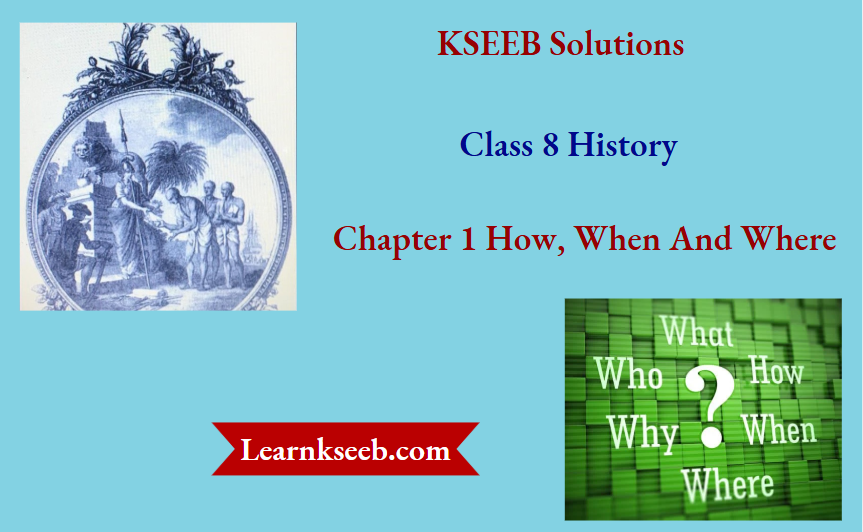
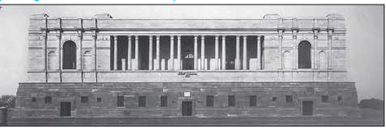
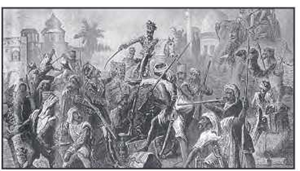

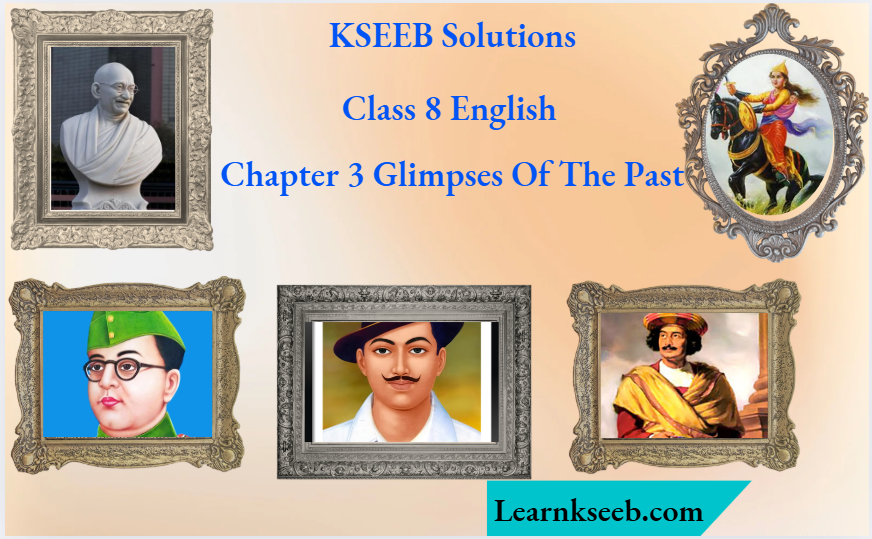
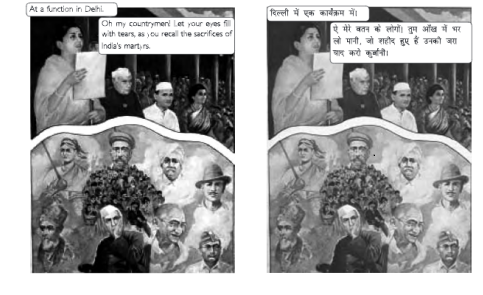
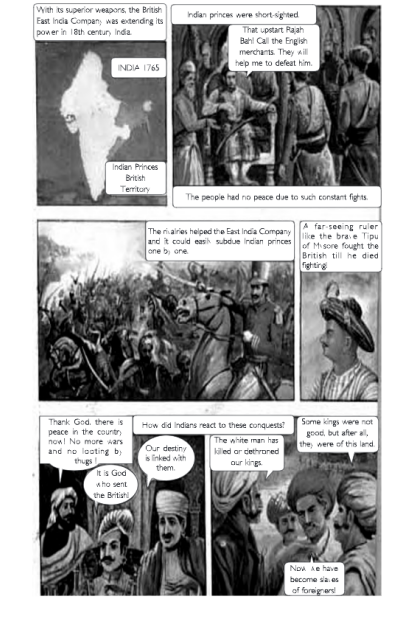


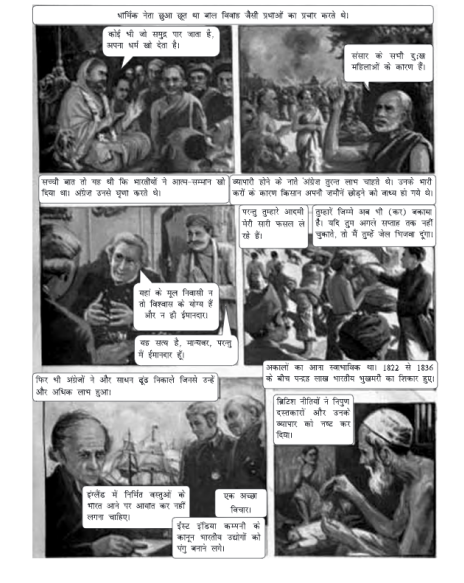
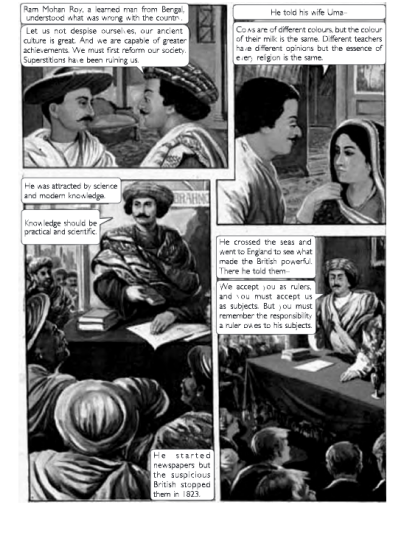
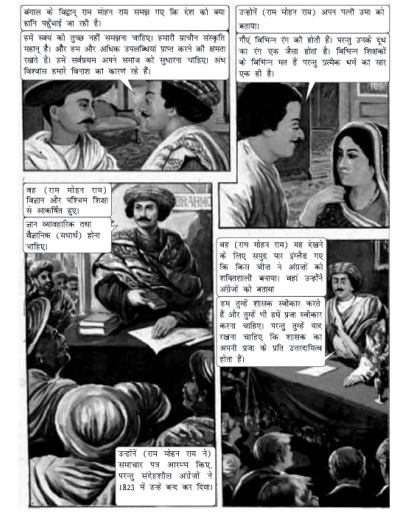

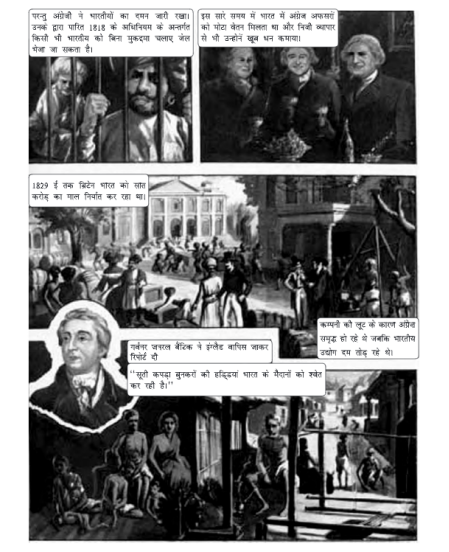
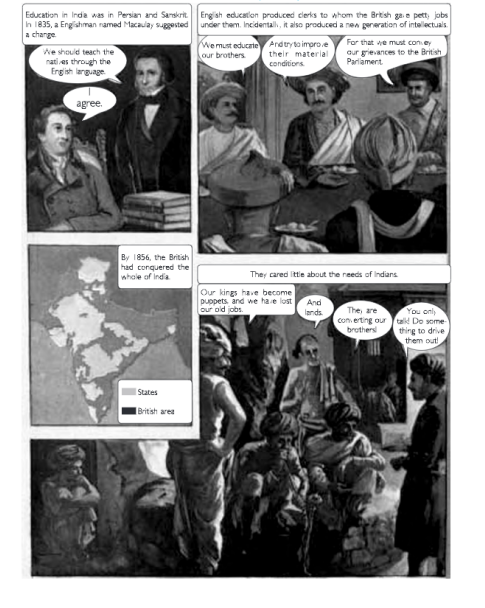
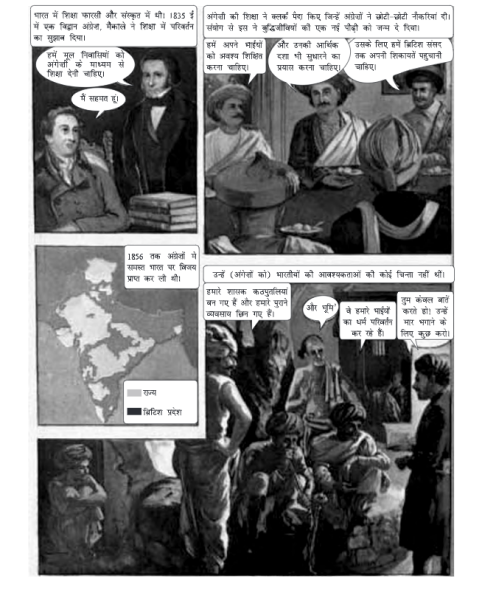
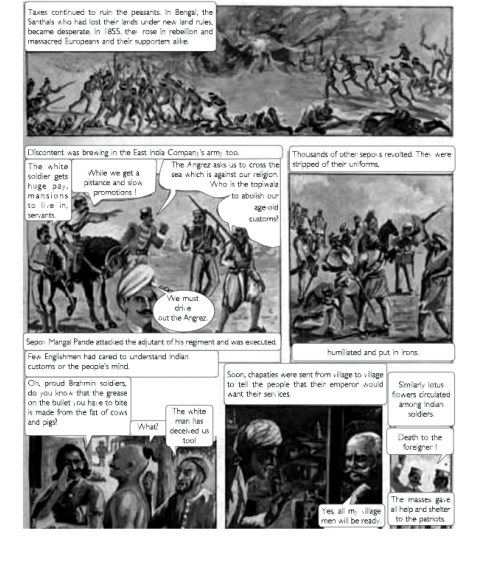
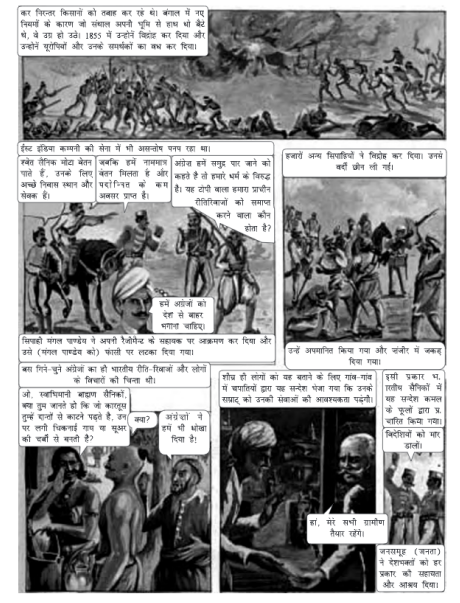
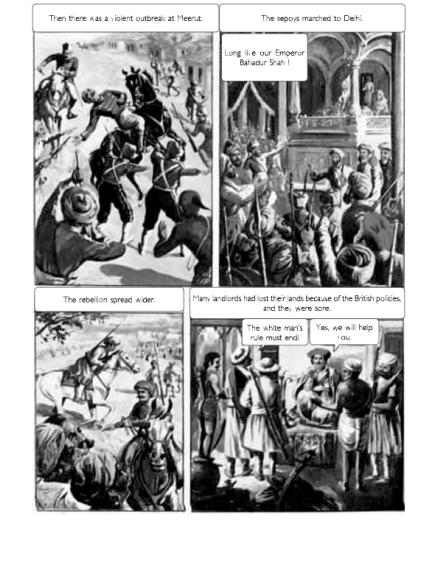
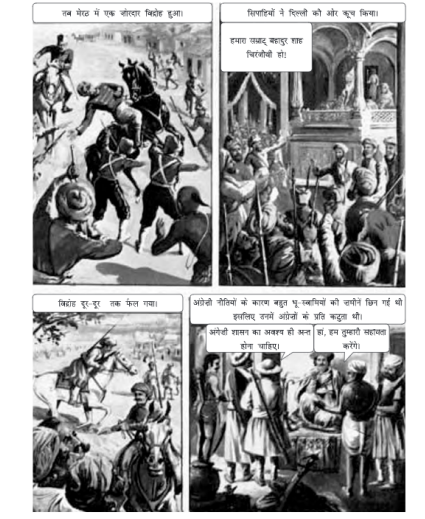
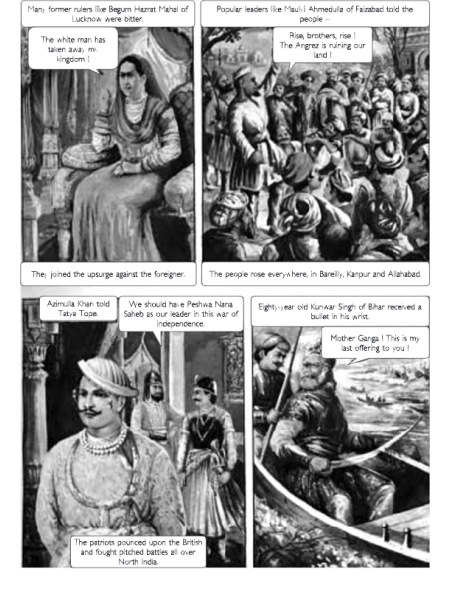
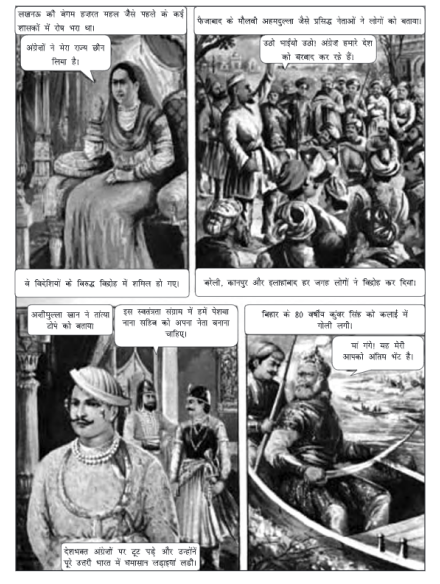
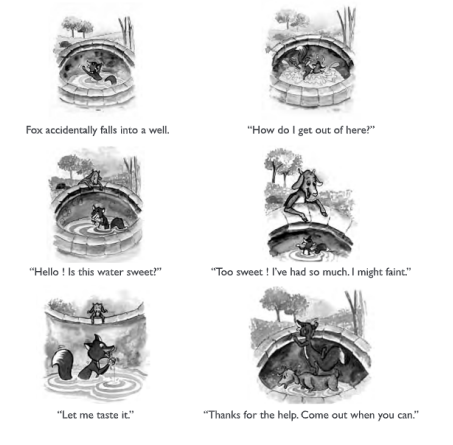
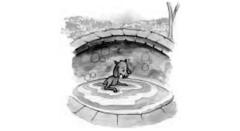

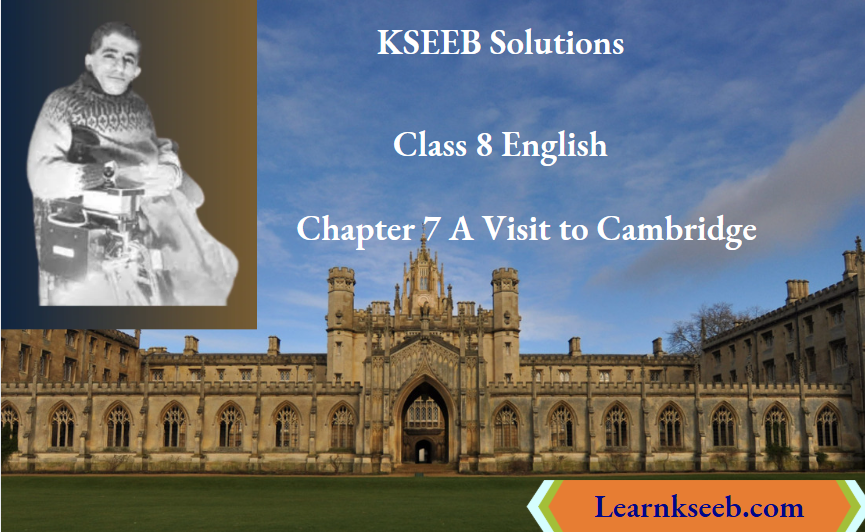
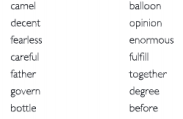
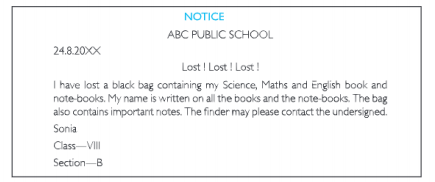

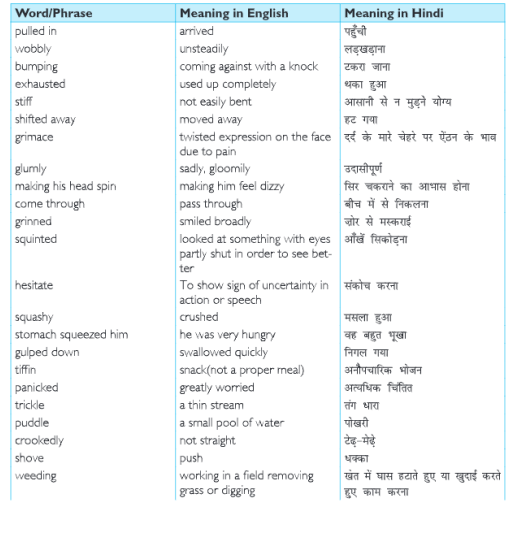





 Answer.
Answer.

